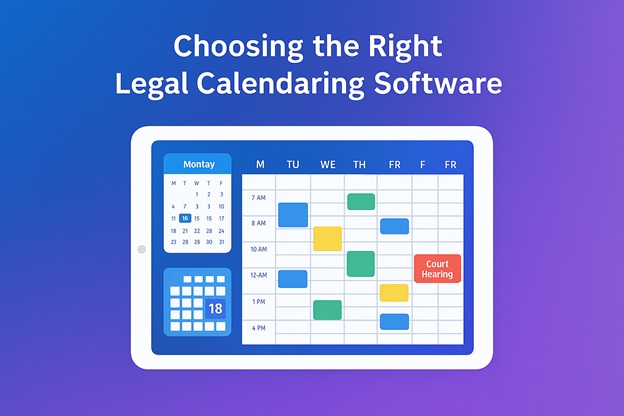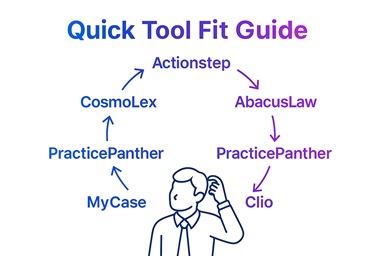
Countrywide Process
June 30, 2025
In law, missed deadlines can have serious consequences: malpractice risk, client dissatisfaction, and disciplinary actions. Standard calendars aren’t enough—most courts use complex rules (e.g., calculating court vs. calendar days), making dedicated legal calendaring essential (onelegal.com).
To stay efficient and compliant, your firm needs calendar software designed for legal workflows—tools that automate deadline calculations and integrate with your existing systems.
Focus on these critical factors:
Note: Overkill (and costly) for solos; steeper learning curve.

Tool | Best For | Key Strength |
| Clio | Firms using the full practice suite | Integration with billing & case mgmt |
| MyCase | Solo or small firms | Simplicity and cost-effectiveness |
| LawToolBox | Litigators across jurisdictions | Court rule automation |
| PracticePanther | Solos needing basic features | Easy setup and mobile-friendly |
| AbacusLaw | Compliance-heavy workflows | Deadline accuracy & internal reporting |
| CosmoLex | Firms wanting unified billing & trust | Legal-operational efficiency |
| Actionstep | Firms needing customizable workflows | Flexible, cloud-based automation |
Choose a tool that fits your firm’s size, budget, and legal workflow—and start preventing missed deadlines today.
Legal calendaring software helps attorneys and legal staff track court deadlines, filing dates, and compliance events based on jurisdiction-specific rules. It ensures critical dates aren’t missed, reducing malpractice risk.
Rule-based calendaring software automatically calculates legal deadlines using preloaded jurisdiction-specific court rules. This means attorneys don’t need to manually count days or reference court calendars.
Clio has built-in calendaring features and integrates with external tools like LawToolBox. If you’re using Clio to manage your case files, Countrywide Process allows you to upload documents stored in Clio directly into our eFiling and process serving portal.
Not always. Some platforms like Clio, CosmoLex, and MyCase include calendaring. However, for complex litigation or multi-jurisdictional firms, dedicated calendaring software like LawToolBox may offer better rule compliance and deadline automation.
Yes. Court calendaring tracks statutory deadlines like hearings and filing cutoffs, while task calendaring focuses on internal milestones like client meetings or drafting deadlines. Legal calendaring tools often combine both.
Yes. Most modern calendaring tools, including PracticePanther, Clio, and MyCase, can sync with Microsoft Outlook and Google Calendar to send automatic reminders and alerts.
Yes. Enterprise-focused tools like AbacusLaw and Actionstep are designed for larger law firms, offering advanced calendaring workflows, robust reporting, and deeper integrations with document and client management platforms.
Most calendaring software providers offer free trials or demos. It’s a good idea to test features like deadline automation, rule sets, and integrations before committing.